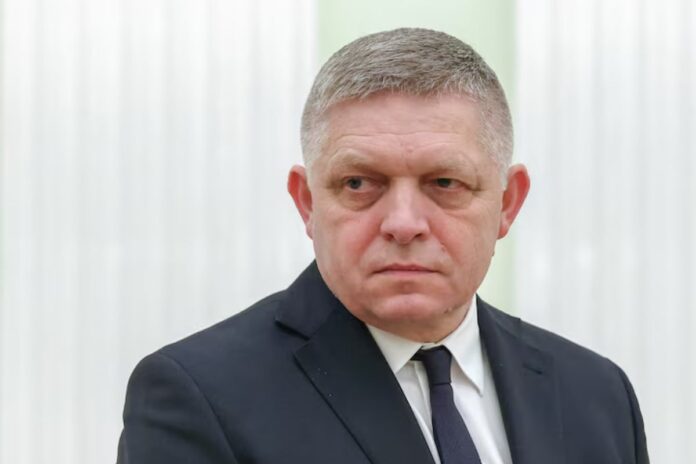Slovakia gas transit disruptions have escalated tensions between Slovakia and Ukraine after Ukrainian authorities halted the flow of Russian gas through their territory. Slovak Prime Minister Robert Fico has accused Ukraine of “sabotage” and announced that his government will consider strong retaliatory measures. These could include cutting electricity supplies to Ukraine, reducing aid to Ukrainian refugees, and demanding compensation or the renewal of gas transit agreements.
Slovakia Faces Economic Fallout From Gas Disruptions
The cessation of Russian gas exports through Soviet-era pipelines marks a turning point in Europe’s energy dynamics. The transit agreement between Russia and Ukraine expired on New Year’s Day, leaving Slovakia to cope with significant economic repercussions. Prime Minister Fico stated that Slovakia could face nearly €500 million in public finance losses due to the halted transit revenues and increased costs for securing alternative gas supplies.
Slovakia’s state-owned gas importer, SPP, has projected an additional €90 million in transit fees for replacing Russian gas this year. The disruptions are expected to elevate energy costs across Europe, with Slovakia particularly vulnerable due to its historical reliance on Russian energy routes.
Accusations Of Sabotage And Political Tensions
Prime Minister Fico, in a video message posted on Facebook, criticized Ukrainian President Volodymyr Zelenskiy, accusing him of deliberate sabotage against Slovakia. “The only alternative for a sovereign Slovakia is the renewal of transit or demanding compensation mechanisms,” Fico declared. He also announced plans for a Slovak delegation to address the issue in Brussels next week before finalizing a strategy with his coalition government.
Zelenskiy, however, has rejected these accusations, alleging that Fico is acting under Russian influence to create a “second energy front” against Ukraine. The strained relations come amid broader geopolitical shifts and energy crises following Russia’s invasion of Ukraine.
Slovakia’s Historical Role In Energy Transit
For decades, Slovakia has been a crucial transit route for Russian gas flowing into Europe. Eustream, Slovakia’s state-majority-owned gas transit operator, reported €158 million in revenue and €25 million in profit during its most recent reporting period. However, the halt in gas transit jeopardizes these revenues and threatens to destabilize the Slovak energy sector further.
Additionally, Slovakia exported 2.4 million megawatt-hours of electricity to Ukraine in the first 11 months of 2024, aiding Ukraine’s energy grid amid Russian bombings. If Slovakia decides to cease electricity exports as a retaliatory measure, Ukraine’s energy crisis could deepen, potentially affecting millions of Ukrainians.
Broader Implications For Europe
The gas transit disruption highlights the fragile energy interdependence in Europe. Slovakia has alternative sources of gas supply, but these come at a higher cost. The country’s shift away from Russian gas aligns with broader European efforts to reduce reliance on Moscow. However, the transition imposes financial and logistical challenges, particularly for countries like Slovakia that are directly impacted by transit disruptions.
Prime Minister Fico, who has pursued closer ties with Russia and ended military aid to Ukraine, has framed the issue as a matter of national sovereignty and economic survival. The potential retaliatory actions could strain Slovakia’s relations with Ukraine and the European Union, testing regional solidarity in addressing energy security.
Whether Slovakia and Ukraine can negotiate a resolution or move toward escalation remains a critical question. The outcome will likely shape not only bilateral relations but also the broader energy strategies of Europe in the face of ongoing geopolitical tensions.

